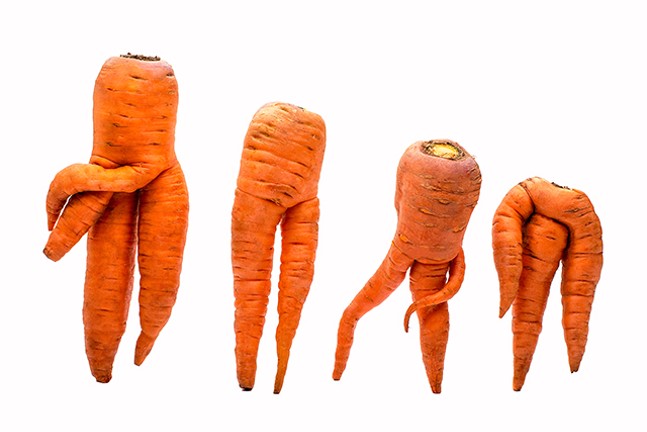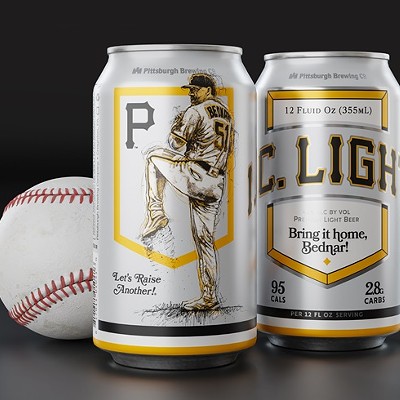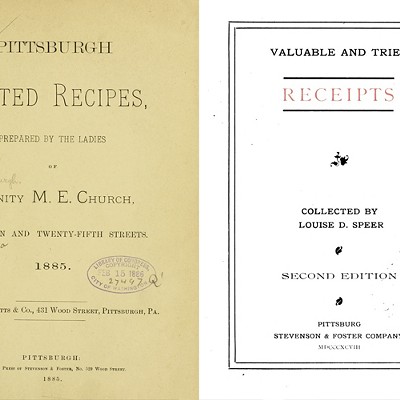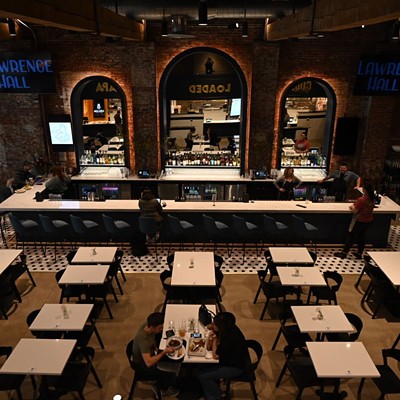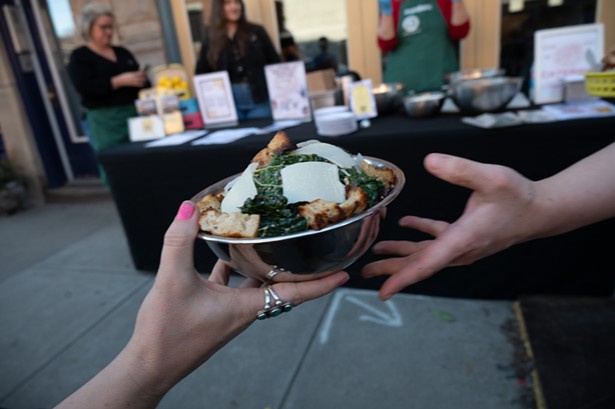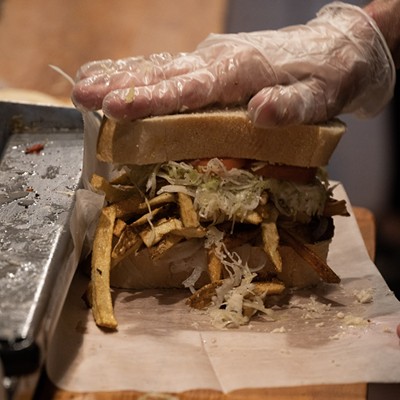Food waste in America falls along so many tributaries that it can be difficult to track. But even small changes, like the way stores market food, can affect the amount of food waste.
According to research published in the Journal of Marketing in December, consumers are less likely to pick "ugly produce" because doing so negatively affects how they think about themselves. The team of researchers included Jillian Hmurovic and Cait Lamberton of the University of Pittsburgh, Lauren Grewal of Dartmouth College, and Rebecca Walker Reczek of Ohio State University.
Hmurovic says that the team felt there was something missing in the explanation of why shoppers pass up perfectly good food just because it has a weird shape or color. "When you imagine consuming it, you actually start feeling more negative about yourself, and as a result, you actually are willing to pay significantly less for the produce," says Hmurovic.
For their research, the definition of ugly produce included food that was healthy and edible but cosmetically damaged. They also focused their research more on "average" customers and not those with special interests in food who might specifically pick ugly produce for socially conscious reasons. Studying consumer behavior included setting up at a grocery store in Sweden and posting signs like "You are fantastic! Pick ugly produce!" around the produce section.
"If you preemptively boost consumer self-perception, then they're not as negatively impacted and they're willing to pay the same amount for the ugly produce as for the attractive produce," says Hmurovic.
According to the Department of Agriculture (USDA), Americans waste 30 to 40 percent of their food supply each year (in 2010, it was 133 billion pounds totaling $161 billion). Researchers at the USDA have also found that those who eat more fruit and vegetables are the most wasteful. Hmurovic says that produce waste happens at every stop along the chain, from grower to retailer to consumers. Sometimes growers won't pick ugly produce because they know it won't sell. Grocery stores might not put it out for the same reason. And even if the shopper buys the ugly produce, it might still rot before it's used.
Programs that sell exclusively ugly food have grown in popularity. Giant Eagle started selling Produce with Personality in 2016 but has since discontinued it. Delivery programs, such as Hungry Harvest, that claim to rescue food from farms have been wildly successful (though they also have their critics, who claim that for-profit ugly produce programs source food that would otherwise go to food banks, restaurants, or canning). There are also more localized versions that source from nearby growers, like the Ugly CSA program from 412 Food Rescue.
Ultimately, Hmurovic hopes that addressing consumers at the point of sale will help reduce the amount of produce wasted by growers, retailers, and shoppers. "We find when we say, 'Your choices don't really reflect who you are,' then people are more likely to pay more for ugly produce."

